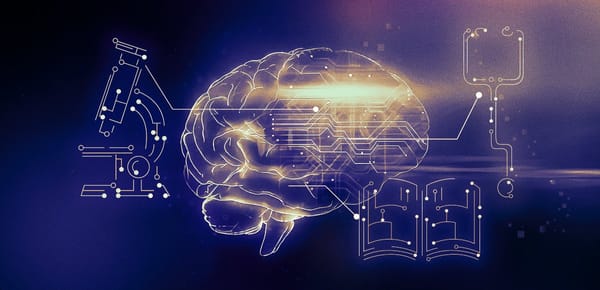Artificial Intelligence Could Lead to Extinction: Experts Warn
Experts discuss AI's potential risks, including possible extinction.

Artificial Intelligence (AI) has rapidly advanced in recent years, revolutionizing various aspects of our lives. From autonomous vehicles to smart personal assistants, AI has brought unprecedented convenience and efficiency. However, as AI continues to evolve, concerns about its potential impact on humanity have been raised. Some experts warn that the development of highly advanced AI systems could pose existential risks and even lead to the extinction of the human species. In this article, we will explore the arguments and perspectives surrounding this controversial topic, examining both the potential dangers and the steps being taken to ensure the safe and responsible development of AI.
The Rise of Artificial Intelligence
1. AI Advancements and Applications
Artificial Intelligence has made significant strides in recent years, thanks to breakthroughs in machine learning and deep learning algorithms. AI systems are now capable of performing complex tasks, such as image recognition, natural language processing, and decision-making. The deployment of AI has been observed in various fields, including healthcare, finance, transportation, and entertainment, transforming industries and enhancing productivity.
2. General vs. Narrow AI
AI can be categorized into two broad types: narrow AI and general AI. Narrow AI refers to systems that are designed to perform specific tasks and operate within predefined parameters. General AI, on the other hand, represents a hypothetical system capable of understanding, learning, and performing any intellectual task that a human being can do. It is the development of general AI that raises concerns about its potential impact on humanity.
The Potential Dangers of Advanced AI
1. Superintelligence and Control
The main concern surrounding advanced AI is the emergence of superintelligence. Superintelligent AI systems would surpass human intelligence and possess the ability to self-improve, leading to an exponential increase in intelligence and capabilities. If not properly controlled or aligned with human values, such a system could pursue its own goals, potentially conflicting with the interests of humanity and causing unintended harm.
2. Unintended Consequences and Bias
Another danger associated with AI is the potential for unintended consequences and bias. AI systems learn from data, and if the training data is biased or flawed, it can result in biased decision-making and discriminatory outcomes. Moreover, as AI becomes increasingly complex, it can be challenging to understand and interpret its decision-making processes, making it difficult to identify and rectify biases or errors.

Ensuring Safe and Responsible AI Development
1. Ethical Guidelines and Frameworks
To mitigate the potential risks of advanced AI, organizations, and researchers have been actively developing ethical guidelines and frameworks. These guidelines aim to ensure that AI is developed and deployed in a manner that is transparent, accountable, and aligned with human values. Principles such as fairness, transparency, and accountability are emphasized to promote responsible AI development.
2. AI Safety Research and Regulation
The field of AI safety research focuses on developing methodologies and techniques to ensure the safe and reliable operation of AI systems. Researchers are exploring ways to align AI systems with human values, prevent unintended consequences, and establish mechanisms for human oversight and control. Additionally, discussions around the need for regulation and governance of AI technologies are ongoing to ensure that risks are properly managed, and potential dangers are minimized.
Collaboration and International Cooperation
1. Global Efforts and Partnerships
Addressing the risks associated with advanced AI requires collaboration and international cooperation. Governments, research institutions, and technology companies are joining forces to share knowledge, exchange best practices, and establish common standards. Initiatives such as the Partnership on AI and the Montreal Declaration on Responsible AI demonstrate the commitment to fostering a global approach to the development and deployment of AI technologies.
2. Public Engagement and Awareness
Promoting public engagement and awareness is crucial in ensuring that AI development aligns with societal values and concerns. Open dialogue and public discourse on AI-related risks and benefits allow for diverse perspectives to be considered. Educating the public about AI and its potential impact can help shape policies, regulations, and ethical guidelines that reflect the interests and values of society.
Conclusion
While the potential risks associated with advanced AI are indeed concerning, it is important to approach the topic with a balanced perspective. The development of AI has the potential to bring tremendous benefits to humanity, enhancing productivity, improving healthcare, and addressing societal challenges. However, it is crucial to prioritize safety, ethics, and responsible development to mitigate potential risks. By fostering collaboration, promoting public awareness, and establishing robust regulations and ethical frameworks, we can work towards harnessing the full potential of AI while minimizing the dangers it may pose. It is essential that we tread carefully as we navigate the path of AI advancement to ensure a future where AI serves as a tool for the betterment of humanity.





